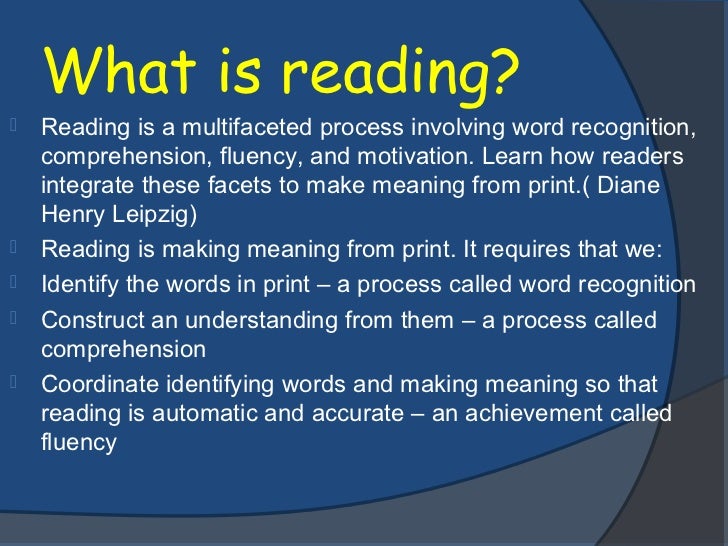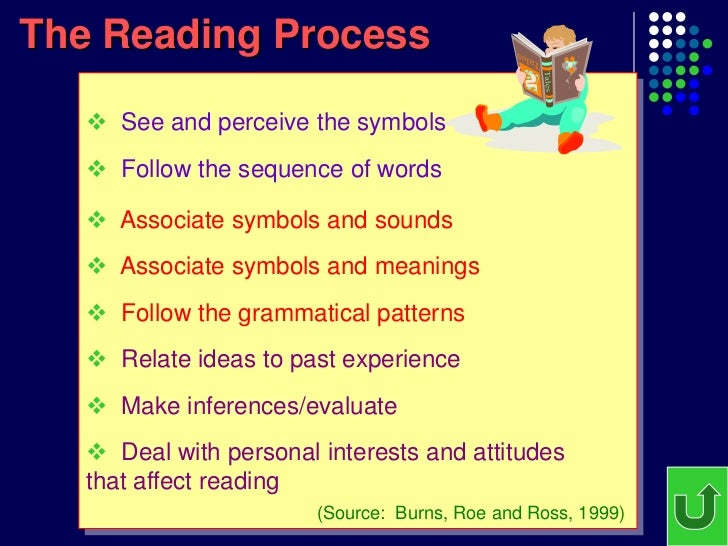You will be keeping a journal (notebook or e-journal) throughout this course.
Ensure the e-journal has a cover page (name, ID, course, lecturer)
Record the date of each entry.
For each entry, insert a heading like "defining reading" or "what reading means to me".
1st Entry (Due by the end of Week 1)
1. Reflect on your initial opinion of this course (before you started the course).
2. Reflect on your initial understanding of the concept 'reading' (before you started this course).
3. Explain how your views about the course and the concept of reading are changing.
Click on comments below for more information on:
- the different conceptual levels of reading (mechanical to personal meaning)
- literary competence and proficient reading (acquisition of CALP)
Exam practice questions: Quote as much as possible.
- What is reading? (4 marks)
- Give three reasons why reading is important. (3 marks)
- What is the relationship between purpose and reading? (3 marks)
- List three (3) purposes for reading. (3 marks)
- Why is literary competence or proficient reading important? (3 marks)
- Differentiate between a struggling reader and a proficient reader. (3 marks)



Levels of Reading
ReplyDeleteTerry D. Johnson (1973). Reading: Teaching and learning. Hampshire, London: Macmillan Education Limited
In attempting to define reading one must consider the reader’s purpose since what is referred to ‘reading’ varies with the intent of the reader.
Conceptual Levels of Reading
At its lowest mechanical level, reading is the interpretation of printed or written symbols into speech or its mental equivalent. The very young child being initiated into the reading process operates at this level although, as we shall see, many teachers consider this to be too limited a concept of reading even for the initial reader. Proof-readers also operate at this low-level mechanical concept of reading. They are not concerned with the meaning of the passage, only with the mechanical details of spelling and grammar. Some linguists also consider reading to be no more than discovering the sound/symbol association or decoding process.
A second conceptual level of reading incorporates the idea of literal meaning. The reader must not only be able to read aloud the words on the page if called on to do so, but be able, if necessary, to react to them in the same way as if they had been spoken to him. Most children in infant schools read in this non-evaluative way, although again, many teachers feel that children should have a deeper understanding while reading.
A third conceptual level of reading involves an active, outgoing attitude on the part of the reader. He attempts to relate the current material to other writings related to the topic, his own experience, the times in which the author wrote the material, the times in which the author wrote the material and the author’s probable intent in writing. This complex of ideas is unified and compared with known standards in forming some evaluative judgement.
A final concept of reading is the personal meaning that reading a particular book has for a particular person. Is there anything in that book that has made me more competent? Given me more understanding of the nature of human beings? Given me more insight into myself as a person? It is this level of learning that is so very important and yet which is so very frequently ignored.
The concept of literary competence is not easy to define, but it includes the ability to infer a message, such as the author’s purpose, main idea, cause and effect, personal reactions, what-if questions, and generalizations. It involves the acquisition of Cognitive Academic Language Proficiency skills (CALP), which is the language needed to learn academic material, to express abstract thinking and higher cognitive skills. As Brumfit (1985) highlighted, “The fundamental ability of a good reader of literature is the ability to generalize from the given text to either other aspects of the literary tradition or personal or social significance outside of literature.” Therefore, literary competence is the ability to convert words on a page into literary meaning.
ReplyDeleteGuy L. Bond & Miles A. Tinker (1973). Reading Difficulties: Their Diagnosis and Correction New York, NY: Meredith Corporation
Proficient Reading
According to Bond and Tinker (1973), “Proficient reading implies clear comprehension of communication presented in print or writing whether the message is a short one such as a safety sign, or a long complicated one such as rules for parliamentary procedures in a state legislative assembly.”
Bond and Tinker (1973) said “proficient reading is necessary for success in all levels of education and in almost every vocation.” The ability to read well constitutes one of the most valuable skills a person can acquire. Our world is a reading world. In many situations, reading constitutes the indispensable channel of communication with an ever-widening world. The importance of proficient reading becomes clearer when its role in various aspects of a person’s life is considered. Among many others the following are well worth special notice: (a) daily life activities; (b) progress in school; (c) recreation; (d) personal and social adjustment; and (e) citizenship.
The article is very informative tutor at World Equestrian Center
ReplyDelete